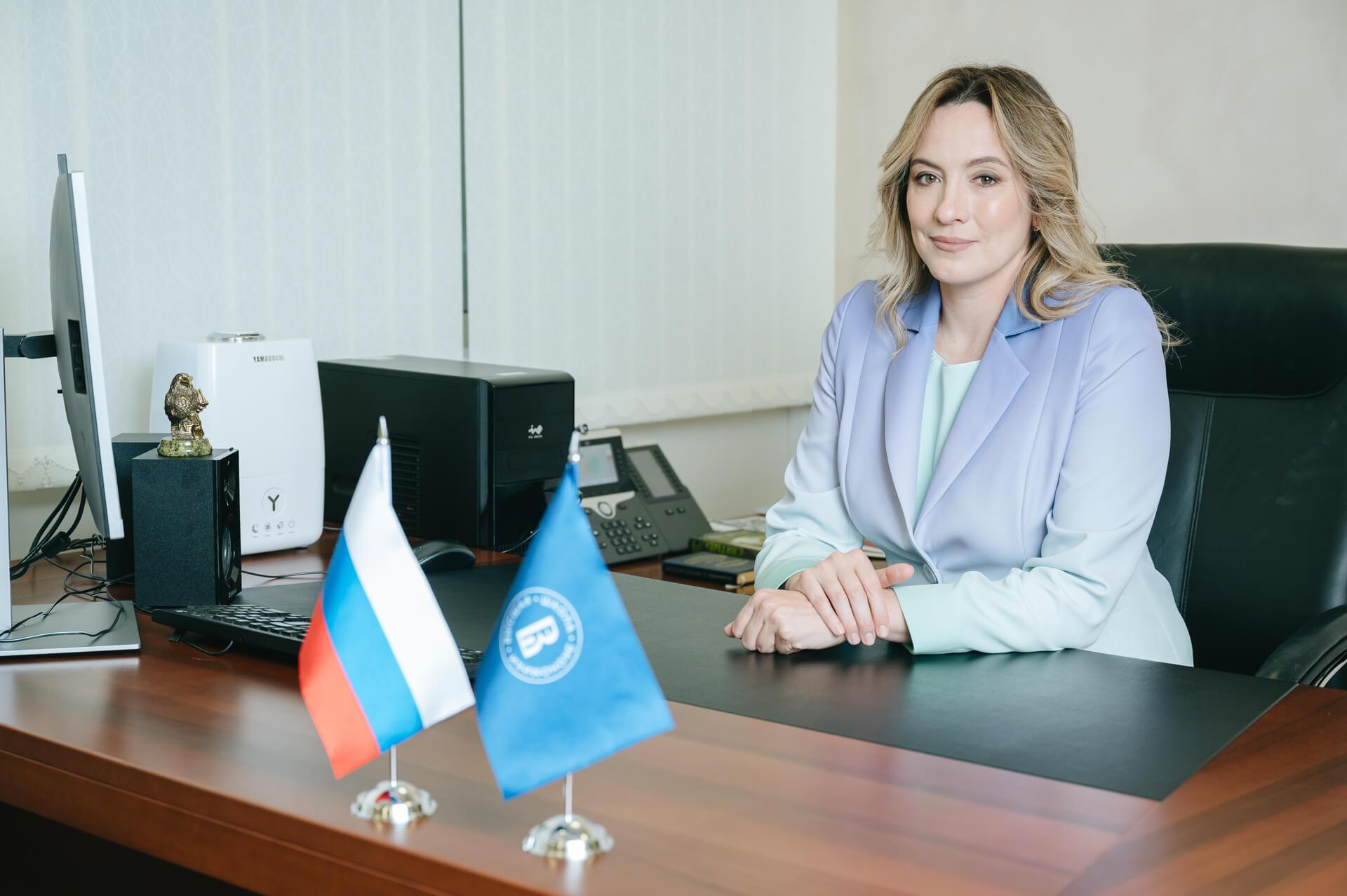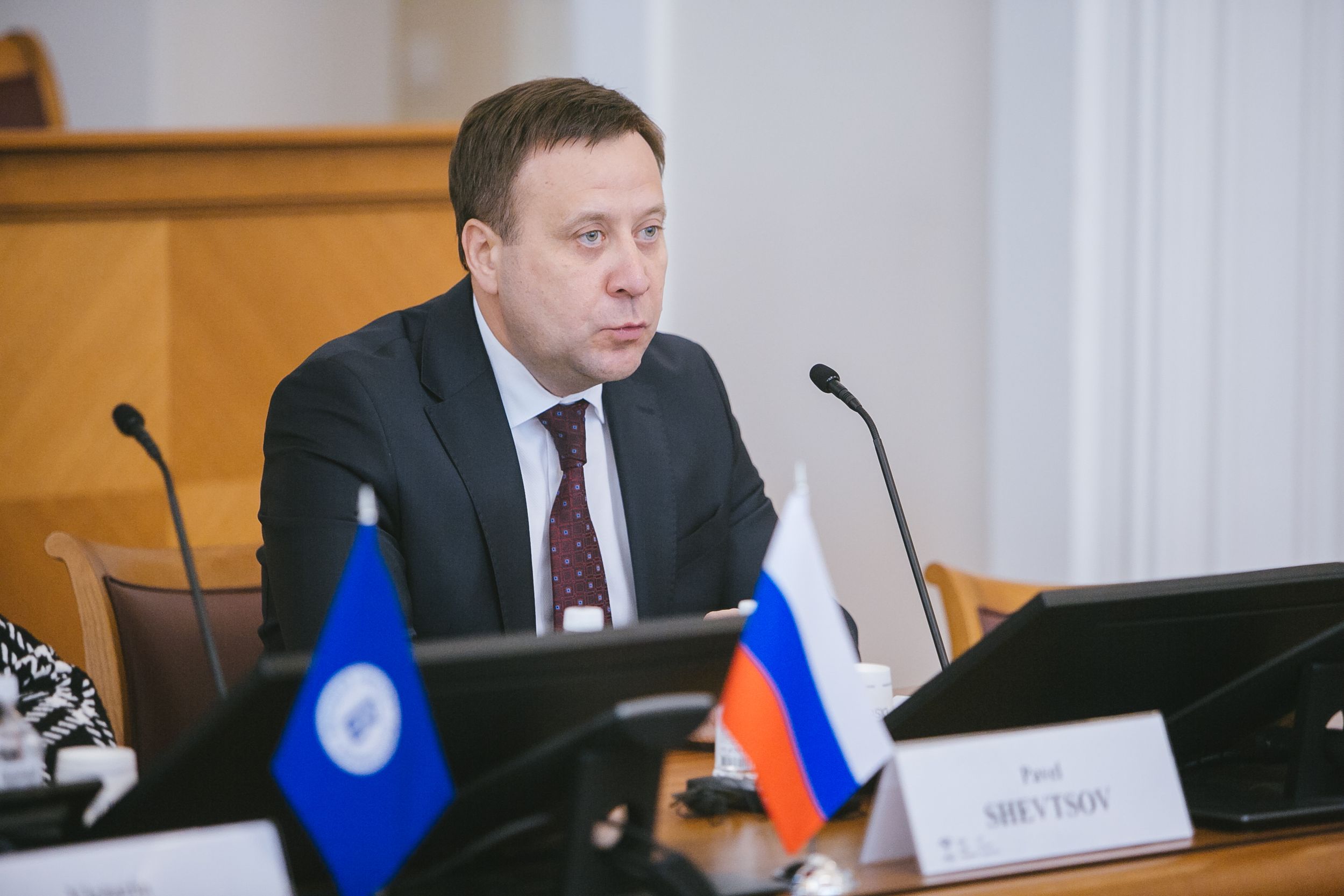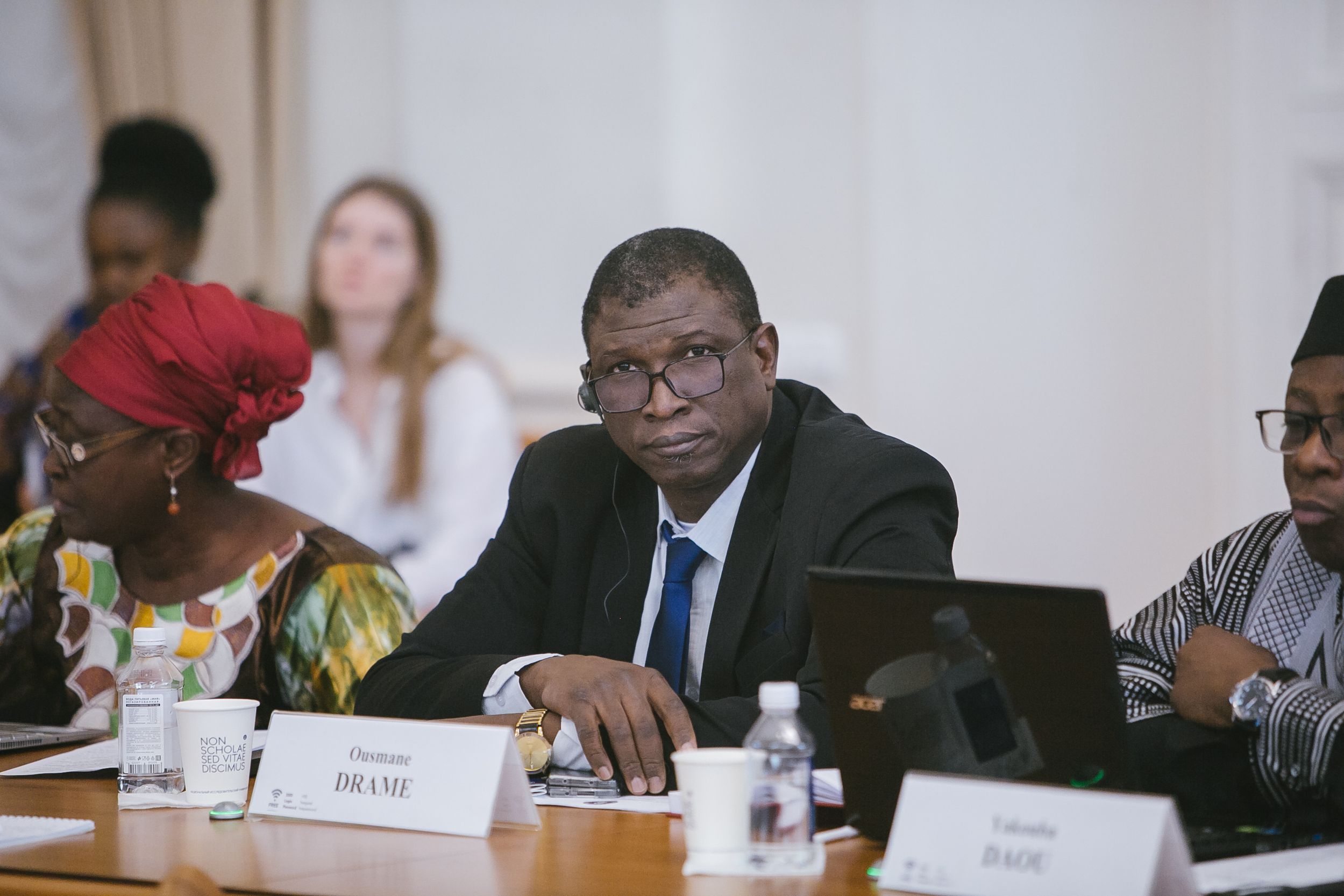Keeping Dialogue Open with Africa: Rectors of Regional Universities Visit HSE
At the end of April 2024, HSE University hosted an international conference ‘Export of Russian Education to Africa: Challenges and Opportunities.’ The event was attended by leaders of universities from Mali, Burkina Faso, Burundi, Niger, and Guinea. Together with their Russian counterparts from government bodies, scientific and higher educational institutions, they outlined paths for the development of humanitarian relations and agreed on possible cooperation in the face of a changing world order.
The international conference, initiated by the HSE Faculty of Social Sciences and the HSE Multilateral Strategic Projects Office, continued an earlier open dialogue with ministers from several African countries during a strategic session in March 2024. The moderator of the conference was Victoria Panova, Vice Rector of HSE University, Director of the BRICS Expert Council–Russia, and Co-chair of the BRICS Civil Forum.

‘Russia's cooperation with Africa spans decades, and over the years, a positive image of both Russia and Russian education has been formed in Africa. This is an excellent foundation upon which we can and should strengthen partnerships between our educational and research organisations and implement joint large-scale strategic projects. Moreover, cooperation can be carried out both within the framework of bilateral relations and within multilateral formats,’ stated Victoria Panova.
The Vice Rector reported that around 35,000 African students are currently studying at Russian universities, and the number is growing. Among the students of HSE University, there are 367 people from 33 African countries, as well as 81 people from 16 countries who are studying Russian as a foreign language and subjects in Russian at the HSE Centre for International Preparatory Programmes.

Pavel Shevtsov, Deputy Head of Rossotrudnichestvo (the Russian Federal Agency for the Commonwealth of Independent States Affairs, Compatriots Living Abroad, and International Humanitarian Cooperation), welcomed conference participants. ‘Over the past three years, we have tripled the quota of the Russian Federation Government for training students from African countries at universities, and this year we are seeing a very big response. The minimum competition is 3.5 applicants per place, and the maximum is 13. Such interest in studying in Russia has not been seen in any other macro-region. Moreover, many African universities are interested in establishing relations with the Russian education system,’ noted Pavel Shevtsov.
In the first part of the conference, guests from African countries spoke about their universities and possible areas of cooperation with Russia.

Pam Zahonogo, President of Thomas Sankara University (Burkina Faso), emphasised the need for citizens of African countries planning to study in Russia to learn the Russian language. ‘It is necessary to form, in advance, an understanding of the region where they will be located. Russian language and culture centres will help with this, thus preventing cultural shock,’ he said.

Alpha Kabinet Keita, Rector of Gamal Abdel Nasser University of Conakry (Republic of Guinea), reminded that his country's cooperation with the USSR began in the late 1950s, immediately after gaining independence, and Soviet teachers contributed to the establishment and development of this university. He believes that the potential of Russian education for African students is significant and there is a need to consider the possibility of studying in new specialties, including those related to energy.

Audace Manirabona, Rector of the University of Burundi (Republic of Burundi), listed other priority areas for training: engineering, agriculture, medicine, entrepreneurship, and journalism. ‘Russia is a wonderful country that always welcomes us warmly, and among those holding leadership positions in Burundi, many are graduates of Russian universities,’ he emphasised.

Anna Traore, Rector of the University of Social Sciences and Management of Bamako (Republic of Mali), who studied in the USSR, spoke about Russia's potential role in improving the education system in her country. ‘We hope that our Russian colleagues will share their scientific discoveries, assist in the creation and equipping of laboratories, in training administrative and technical personnel for universities, as well as in university management issues,’ she explained.

Ousmane Drame, President of Ahmed Baba Private University (Republic of Mali), noted that the education system that existed in his country until the 1960s was imposed by European colonisers, and a sovereign system had to be built from scratch. He expressed hope that Russia could support Malian universities, especially since the quality of Russian education, in his opinion, is higher than that in Europe and the USA. ‘We are very pleased to be attending this conference at HSE University and representing the African continent here. For us, this is a sign that we will take matters into our own hands and act as we should,’ Ousmane Drame added.

Ibro Chekaraou, Secretary-General of Abdou Moumouni University of Niamey (Republic of Niger), elaborated on the idea of building a sovereign education system. ‘We constantly stress that cooperation must be mutually beneficial, and we want to get rid of the imposed Western specialists' notion that we cannot manage without them. I would prefer to talk not about exporting education but rather about a partnership—a two-way process. It is in this format that we would like to cooperate with Russia,’ he stated.
Representatives from the Russian side remarked on the speeches of African guests.

Stepan Sokolov, Deputy Director of the Department of International Cooperation at the Ministry of Education and Science of Russia, reported that over the past 60 years, 310,000 students from Africa have graduated from Russian universities. ‘They maintain warm feelings and a lively interest in Russia, many occupy high positions, become presidents, ministers. We are ready to continue to assist in training personnel for African countries,’ he noted.

Natalia Zherlitsyna, Deputy Director of the Institute for African Studies of the Russian Academy of Sciences, mentioned that in cooperation with African countries in education and science Russia relies on a non-Western model of human potential development. ‘African countries are not offered to become donors of human resources, which can be considered one of the forms of neo-colonial exploitation. Russia is based on the ever-increasing value of human resources: having received education, graduates return to their homeland and remain friends of the country where they studied,’ she emphasised.
Summarising the first part of the conference, Victoria Panova once again emphasised that Africa is a region with enormous potential. ‘For Russia, partnership with Africa is one of the top priorities, which is reflected in Russia's Foreign Policy Concept and confirmed in practice. Russia's cooperation with African countries is growing in all areas, including higher education. I hope it will be strengthened with our joint efforts and constant interaction,’ she said.
In the second part of the conference, representatives of Russian scientific and educational organisations from different regions, including Novosibirsk and Tomsk, spoke about cooperation with African countries. Leonid Issaev, Deputy Director of the HSE Centre for Stability and Risk Analysis, moderated the session.

In his final speech at the conference, he noted the presence of political will to continue cooperation from both Russia and African states. ‘Our goal was to have an honest, open dialogue at HSE University. I am very grateful to you for expressing your thoughts, vision, and recommendations. I am ready to confirm, as a person who often travels to Africa, that Russia is very well received there. Russia is awaited in Africa, the Russian language and Russian education are in demand,’ Issaev said.
In his assessment, there are currently numerous opportunities for cooperation in education between Russia and African countries, and they should be utilised to make up for lost opportunities in recent years. This interaction need not start from scratch—the potential existed even in Soviet times—but both sides still have to exert considerable effort to achieve results.
See also:
HSE Hosts Round Table ‘Africa and BRICS: Reflections and Prospects’
On April 15, 2024 HSE University hosted a roundtable discussion ‘Africa and BRICS: Reflections and Prospects.’ The event featured leading experts from the South African Institute of International Affairs (SAIIA) Steven Gruzd and Gustavo de Carvalho and was moderated by HSE Vice Rector and Head of the BRICS Expert Council–Russia Victoria Panova.
‘We Have Promising Opportunities with Africa, and It Is Important to Foster Cooperation’
A Strategic Session focusing on cooperation between Russia and African countries in the sphere of higher education was held at HSE University's building on Pokrovsky Bulvar. The event was attended by representatives of HSE University, rectors of other Russian universities, and ambassadors and ministers of higher education from several African states.
Russia and Africa: Sharing Knowledge in Digitalisation
A school focusing on the digitalisation of public administration for civil servants from African countries was held in Moscow in December 2023. The school proved the high demand for Russian training programmes — representatives of 23 countries and 3 international organisations received certificates following advanced training.
Russian Government and HSE University to Help with Digitalisation of African Countries
The Russian-African Competence Transfer Programme in the Field of Public Administration Digitalisation in African Countries, which is being implemented by HSE University's Centre for African Studies, will be partially state-financed. The subsidy will be provided by the Russian government in accordance with the corresponding order signed on September 21.
Russia to Help Africa with Public Service Digitalisation
Russian and African civil servants are to exchange experience in the field of digitalisation. The programme was presented by HSE University’s Centre for African Studies in cooperation with the Innopraktika company. The programme organisers are also ready to carry out educational events in any country on the continent.
Association of African Graduates of Russian Universities to Be Created in St Petersburg
The first international Forum of African Graduates of Russian and Soviet Universities has come to an end. The forum was held at HSE University in St Petersburg as part of the second Russia–Africa Summit.
HSE Researchers Undertake Unique Scientific Expedition to West Africa
Researchers from the HSE Faculty of Social Sciences will study social processes in African countries, the issues and features of the continent’s demographic development, and problems related to the causes of separatism and decentralisation in particular African states during a multi-day scientific expedition that will be launched in June 2023.
Dialogue with Africa: How Nigeria and Russia Can Promote Mutually Beneficial Cooperation
Russia and Nigeria have good prospects for cooperation in many economic sectors—from mining, petrochemicals, agriculture, and high-tech manufacturing to education and mutual investment. The Embassy of Nigeria in Russia, together with NUIA Consulting and HSE University, has held a business briefing on ‘Entering New Markets: Nigeria—Opportunities, Prospects and Practical Experience of Russian Companies’.
Russia and Africa: Time to Expand Cooperation
There is major potential for economic and humanitarian cooperation between Russia and African countries. Particularly, Russian organisations and universities can help transfer competencies and knowledge in the fields of agriculture, energy, industrial production, environmental management, climate change, and public administration. Experts and representatives of African embassies in Russia discussed these issues at the round table ‘Russia-Africa Sharing Knowledge’ hosted by HSE University.
HSE University Experts Present Report on ‘Africa: Development Prospects and Recommendations for Russian Policy’
The report was prepared by a group from the HSE University Centre for African Studies and the Centre for Comprehensive European and International Studies of the Faculty of World Economy and International Affairs. The authors highlight that Russia is invested in the future development of the continent and is open to dialogue with all African nations. The report names the most economically promising fields to be energy, digital technologies, and agriculture.


